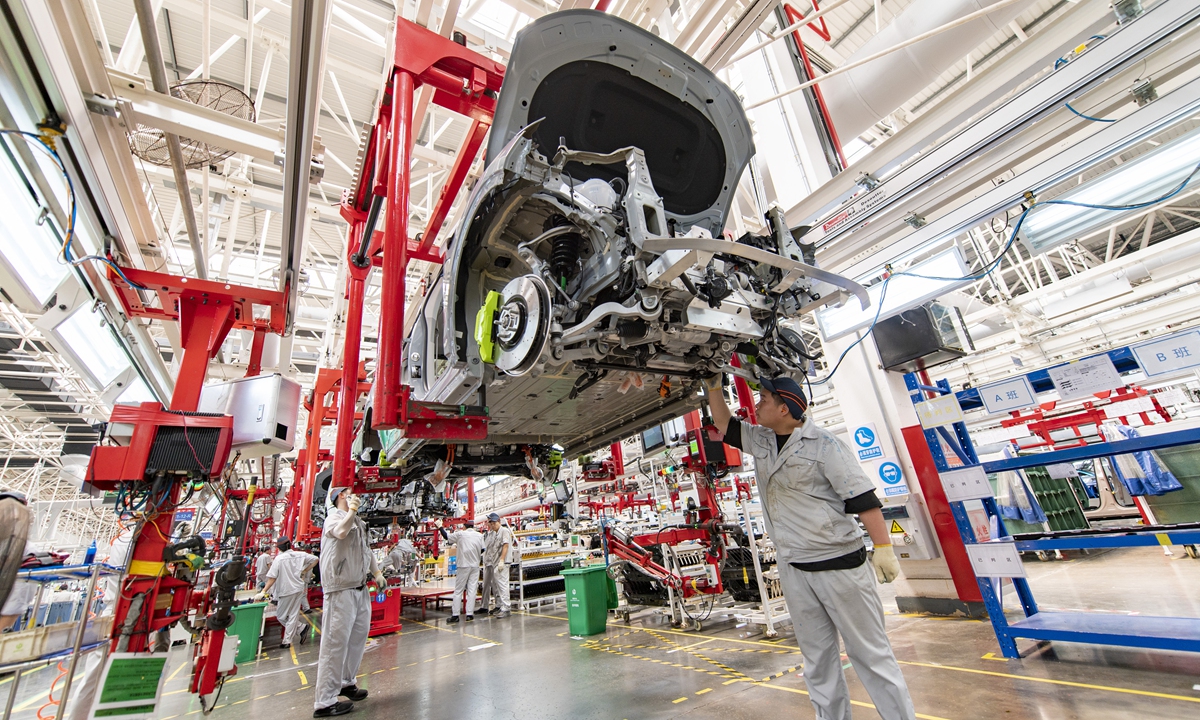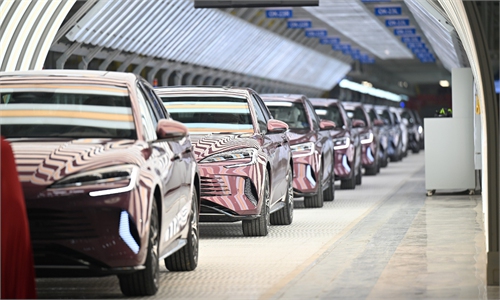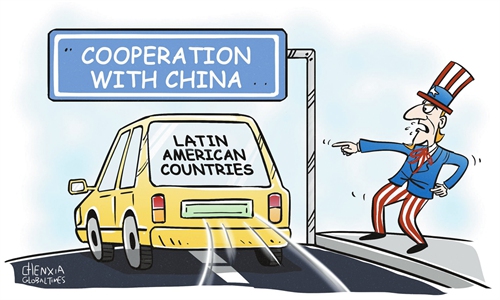Chinese carmakers see strong sales in September, supported by government’s trade-in program

Workers are busy at a production line of new-energy vehicles (NEVs) in Jinhua, East China's Zhejiang Province on July 2, 2024. The volume of NEV production is rising driven by growing demand. Zhejiang is striving to produce more than 1.2 million NEVs annually, or more than 60 percent of the province's total automobile production, by 2025, and its NEV output will account for about 10 percent of the country's total. Photo: VCG
The implementation of China's durable consumer goods trade-in program has helped spur market demand for automobiles during the Golden Week holidays, and many domestic carmakers saw strong sales in September.
During the just-concluded week-long National Day holidays, crowds were spotted at car dealerships in Beijing. A local salesperson surnamed Deng told the Global Times on Tuesday that the store that he works in experienced busy holidays, with potential car-buyers coming in for a test drive.
Nearly 20 cities held auto shows during the holidays, while the Suzhou International Auto Show ending on Saturday attracted more than 250,000 visitors with total sales surpassing 4 billion yuan ($566.3 million), China Media Group reported.
The so-called "Golden September and Silver October" is the traditional peak season for auto consumption.
The auto market in September was bolstered by the government's trade-in and equipment renewal programs, combined with the holiday effect of the Mid-Autumn Festival, according to the China Passenger Car Association.
Boosted by the preferential government policy support, domestic carmakers recorded rising car sales last month, and some made record-high deliveries.
For instance, smart electric vehicle (EV) maker Li Auto delivered 53,709 units in September, recording a yearly increase of 48.9 percent and hitting a new high for its monthly deliveries.
And EV maker Xpeng set a new sales record, as the firm delivered 21,352 new cars in September, marking a year-on-year increase of 39 percent.
Another EV maker NIO delivered 20,349 new vehicles last month, up 30.1 percent year-on-year, while the company delivered 61, 023 cars in the third quarter, setting a new record.
Zhang Xiang, secretary general of the International Intelligent Vehicle Engineering Association, attributed the sales growth to the implementation of the government's trade-in program as well as the carmakers' non-stop innovation.
Some 24 Chinese provinces and cities including Southwest China's Chongqing, Beijing, Tianjin, Shanghai, and East China's Jiangsu Province have introduced policy measures to encourage replacement and renewal of older cars, said Wen Hua, an official from the National Development and Reform Commission at a press conference in September.
Global Times



